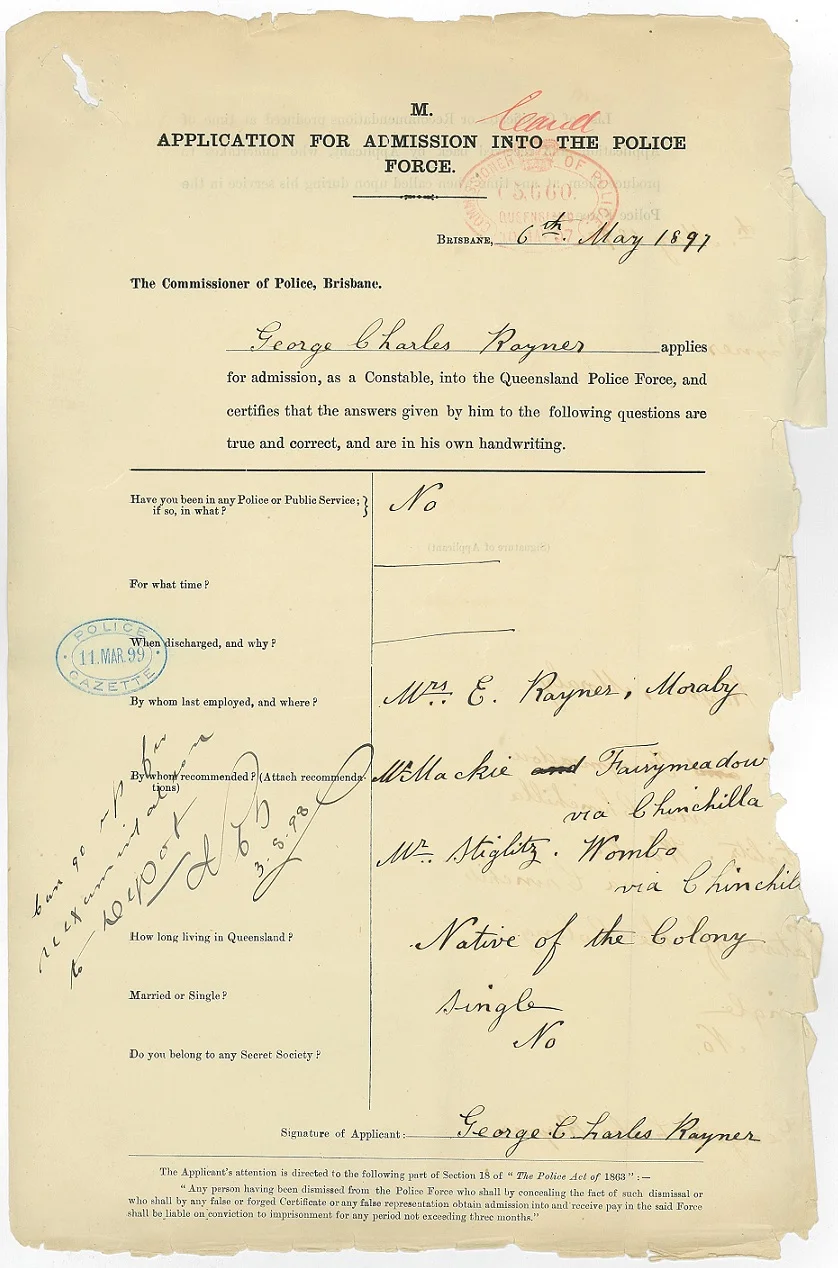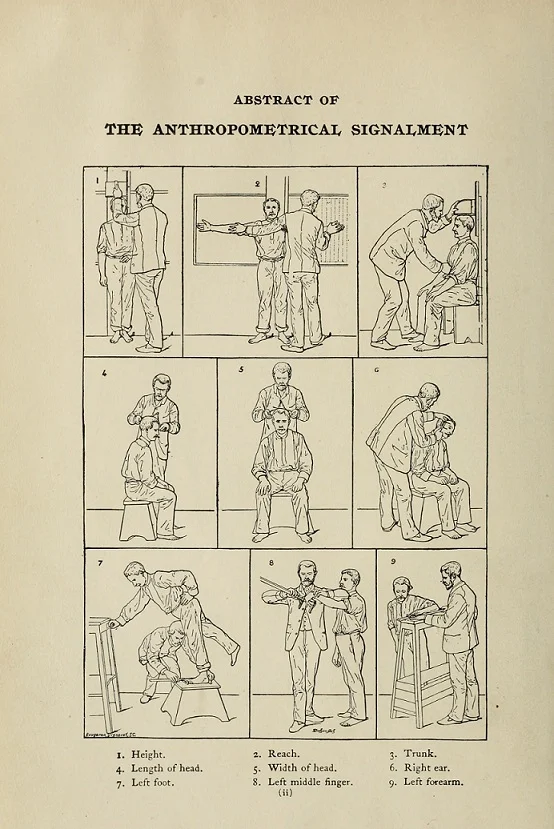A Busy Constable Polices Gamblers and Larrikins
George Charles Rayner was born at Moraby, near Yeulba, on 28 October 1876. Before joining the Queensland Police Force he was employed as a stockman. His employer, Mr. Moore at Miles described him as ‘a willing and hard worker, honest and sober’.
Rayner was sworn in as a Constable on the 4 March 1899. He was stationed at Charleville for about 18 months, before being transferred to Bundaberg in January 1901. Three months later Rayner resigned to help his mother and brothers at Moraby Station. On the 6 August 1901 he married Edith Bunt, whose family lived in Chinchilla.
Read More
Duties and Regulations: 'An Unpopular Policeman is Useless as a Detective'
By and large, the majority of duties of the Queensland’s Policeman were spelt out in, very great detail, in numerous rules and regulations guidelines. Due to the intricate and precarious nature of police service in a metropolis, and the police and public relationship, a police manual meticulously outlined the duties and definitions of virtually everything a policeman could encounter on the job.
Read More
A Verbal Portrait: Victorian Criminal Identification Methods
In 1882, Alphonse Bertillon developed anthropometry, a criminal identification system also known as bertillonage. Bertillon devised three kinds of signalment: anthropometrical (based on series of specific body measurements), descriptive and signalment by peculiar marks (such as tattoos, scars, birthmarks).
Read More
Mysterious Explosion at the Brisbane CIB, 1927
On 14 August 1927, the Criminal Investigation Branch building was rocked by a violent explosion in a property room. ‘The roar of the discharge was heard for miles around, being audible in the suburbs.’ (BC, 15 Aug 1927, p. 13) Numerous crime records and exhibits in cases before the Police and Supreme Courts were destroyed, and nearly all windows and doors were shattered. Considerable damage from timber, iron and plaster hurled through the air was done to the buildings in the area.
Read More
Brisbane’s “Scotland Yard”, 1864-1964
The Detective Office began on 1 December 1864, 11 months after the inauguration of the Queensland Police Force on January 1. Samuel Joseph Lloyd was placed as the officer in charge of the new branch. Lloyd immigrated to Australia from Ireland and joined the Victoria Police Force in 1855, where he served as a Detective for nearly a decade prior to joining the Queensland Police. Lloyd was OIC of the Detective Branch on and off for the next 32 years, until he retired in February 1896. The number of Detectives in the Office was nominal and drawn basically from the best police officers in Brisbane. There were 2 classes – Detective Constable 1/c and Detective Constable 2/c. Employed only on a part-time basis, the Detectives spent the other part of their time carrying out ordinary police duties. They received no extra pay despite the complicated character of their work and the long hours they often worked in criminal detection.
Read More
‘Sir, I respectfully offer myself a Candidate as Constable in the Queensland Police Force’
‘Sir, I respectfully offer myself a Candidate as Constable in the Queensland Police Force’ – all candidates for admission into the Queensland Police Force had to apply in person, with an application in their own handwriting, and such testimonials as they may have. Despite complaints from country hopefuls, who found it difficult to travel to the colonial capital, all men wishing to be considered for the position had to assemble at the Police Depot on Wednesday at 9 o’clock in the morning.
Read More
Perils of Beat Duty
The duties of police Constables were extensive, arduous, and around the clock. After drunkenness and common assaults, misdemeanours against Constables on duty formed the most prominent sub-category tried at the Police Court. Throughout the nineteenth century, one of the most prevalent offences was destroying a policeman’s uniform. This was of great annoyance to the policeman and his wife, assuming he had one, for she bore the responsibility of restoring the uniform; no additional allowance was provided for a replacement. According to the report of Police Commissioner Seymour, in 1866 a new regulation was passed which declared that the members of the force were supposed to provide their own clothing.
Read More








